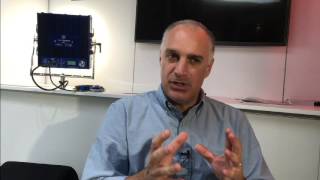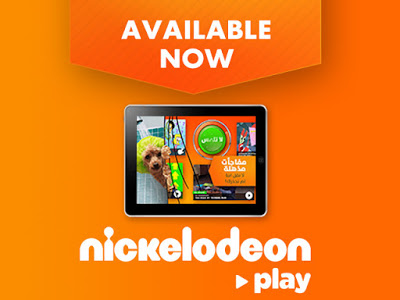Rohit Dsilva, general manager of Fox International Channels talks to BroadcastPro Middle East on forming partnerships, localising a global brand and the rise of 3D TV When Rohit Dsilva, general manager of Fox International Channels (FIC), arrived in the UAE in 2006, the global network had just one channel distributed in the region. Some five-and-a-half […]

Rohit Dsilva, general manager of Fox International Channels talks to BroadcastPro Middle East on forming partnerships, localising a global brand and the rise of 3D TV
When Rohit Dsilva, general manager of Fox International Channels (FIC), arrived in the UAE in 2006, the global network had just one channel distributed in the region. Some five-and-a-half years later, FIC airs 14 channels across Middle East countries, including UAE, Qatar and Saudi Arabia.
With a background in consumer products, Dsilva has been wi

th the global multimedia business since 2004, and working with a small team, he spent his first year planning the right approach to develop the company in the region.
The potential in the market was evident. A raft of popular global brands and content across channels such as National Geographic Channel, FoxMovies and FOX soon caught the attention of viewers across the Middle East and has helped FIC become one of the must-have FTA channels in the region.
Today, we have 14 television channels across FTA and pay TV and also have channels that operate in Hollywood movies, factual, US comedies, kids programmes, sports and music, says Dsilva.
Despite its rapid growth, FICs scale and scope of operations in the region is small. Offices in Dubai and the UAE capital, Abu Dhabi house just 60 employees.
It is FICs strategic partnerships with regional heavyweights and its capacity to localise its established global brands that has enabled the channel to become one of the most recognised brands in the region.
In 2008, FIC fomed a partnership with Rotana Media Group, one of the largest media companies regionally, for distribution of its FOX, FoxMovies and FX channels.
Our relationship with Rotana has been very successful, explains Dsilva.
FIC still operates as an independent entity, but the partnership is in its fourth year and it is a long-term agreement.
The networks recent partnership with Abu Dhabi Media saw the creation of the worlds first FTA National Geographic Abu Dhabi channel, a smart move that sees FIC satisfy local tastes and resonate with local viewers.
The content is completely localised for pan-Arab audiences and dubbed in Arabic, says Dsilva.
It is extremely popular in the UAE because there is a lack of quality, factual programmes in the region. With ADM, we took advantage of the gap in the market. Today, Nat Geos regional Facebook page has more than 310,000 fans; this is phenomenal, explains Dsilva.
And 2,000 fans are joining every week. It shows us that, with the right partnerships, we can develop new segments in the market. We cover stories that are about the region and when we market a channel, we include the region, adds Dsilva.
Saudi Arabia is the biggest market in the GCC. Last year, FICs ratings in the Kingdom grew 70%. Qatar is also a strategically important market following a ratings boost of 25% in 2011.
Dsilva comments that these growth figures are significant, but for FIC, it is also about looking at the bigger picture.
Places like Saudi Arabia, Qatar and the UAE are important, but as a company with 14 channels, we are here for the long-term. The MENA region will start to manifest itself, says Dsilva.
Egypt is bouncing back strongly, and North Africa offers fantastic opportunities, he adds, especially with changes that have taken place in the last year. Political and social issues in this part of the world have kick-started those economies. Growth is much faster and prosperity will develop.
On the other side, you have the UAE which remains at the forefront of infrastructure development. Qatar will develop with its 2022 FIFA World Cup bid win and places like Iraq offer more stability. Its just that the Middle East requires patience and commitment to the long-haul, adds Dsilva.
Partnerships with telecommunication and cable operators in Qatar, UAE and Saudi Arabia, including Qtel, OSN and du have enabled FIC to air nine of its channels in HD. These include FoxMovies and FoxSports. It was the first channel group in the region to move to HD technology in March 2009.
Dsilva confirms that more channels will air in HD this year, although he failed to disclose exactly which ones.
We have seven channels on OSN in HD and we want to get as many channels as possible in HD. We can do it more efficiently than a lot of other broadcasters in the region because we have experience in it globally.
FIC is also looking to partner with satellite and IPTV operators in the Middle East to create blocks of time to air programmes in 3D. Dsilva refutes plans to launch a 3D channel this year, but confirms that much of the networks footage is 3D ready, including footage for its popular National Geographic Arabia channel and some sports events.
Programmes that we have the rights to, we have developed some footage in 3D. But we have no immediate plans to launch our own 3D channel.
Saying that, we are looking to partner with satellite operators and IPTV operators to create blocks of time where we could air programmes using 3D technology.
Dsilva admits that until the 3D platform in the region develops, creating and launching a dedicated 3D channel is not a priority for FIC.
Broadcasters, electrical product suppliers and operators need to work together to develop the delivery of 3D content to consumers first. FIC will then ready itself in the same way it did with HD delivery.
FIC was one of the first channel groups to adopt HD in the region in March 2009 after an extended period of preparation.
Any plans to deliver the FOX brands on mobile platforms have made significantly more progress. The National Geographic channels are already tailored for mobile delivery, as are a number of US sporting events including the NHL (National Hockey League), which FIC has the mobile and online rights to.
Going forward, we will be in a position to offer content on mobile platforms, including the US top-rated survival adventure series, Walking Dead, says Dsilva.
Although FIC does not see an exponential growth in the mobile delivery sector for its brand, Dsilva acknowledges that there is an opportunity there.
The roll-out depends on telecom operators. If there is a good potential for broadcasters and they can see significant potential in growth, then it will happen. It is not really a priority at the moment we are preoccupied with our fast growth from one channel to 14 we have been focusing on this. But we look at all options.
Meanwhile, the network continues to invest heavily in local productions, particularly when commissioning content for its National Geographic Arabic channel.
We have plans to significantly scale that up this year and the next, confides Dsilva.
Producing and delivering relevant and localised content to the region on a number of platforms is FICs top priority, and timing is all important when embarking on new projects in todays market. The tough economic climate and the effects of the Arab Spring which began in 2011 have shown the broadcast giant that the industry is not immune from macro developments either economic or political.
2011 was extremely challenging and this year will be difficult, admits Dsilva.
It doesnt change our view of the region where we want to grow presence, but timing needs to be considered and we may need to rework our plans along the way.
A steady strategy in the Middle East has helped FIC expand to become one of the most recognised brands in the region, and it must continue to tread carefully when considering the launch of new high-cost digital platforms.
The broadcast sector is under as much pressure to stay abreast of potentially damaging situations as any other commercial entity in the Middle East and the year ahead is, quite rightly, approached with caution.















































































